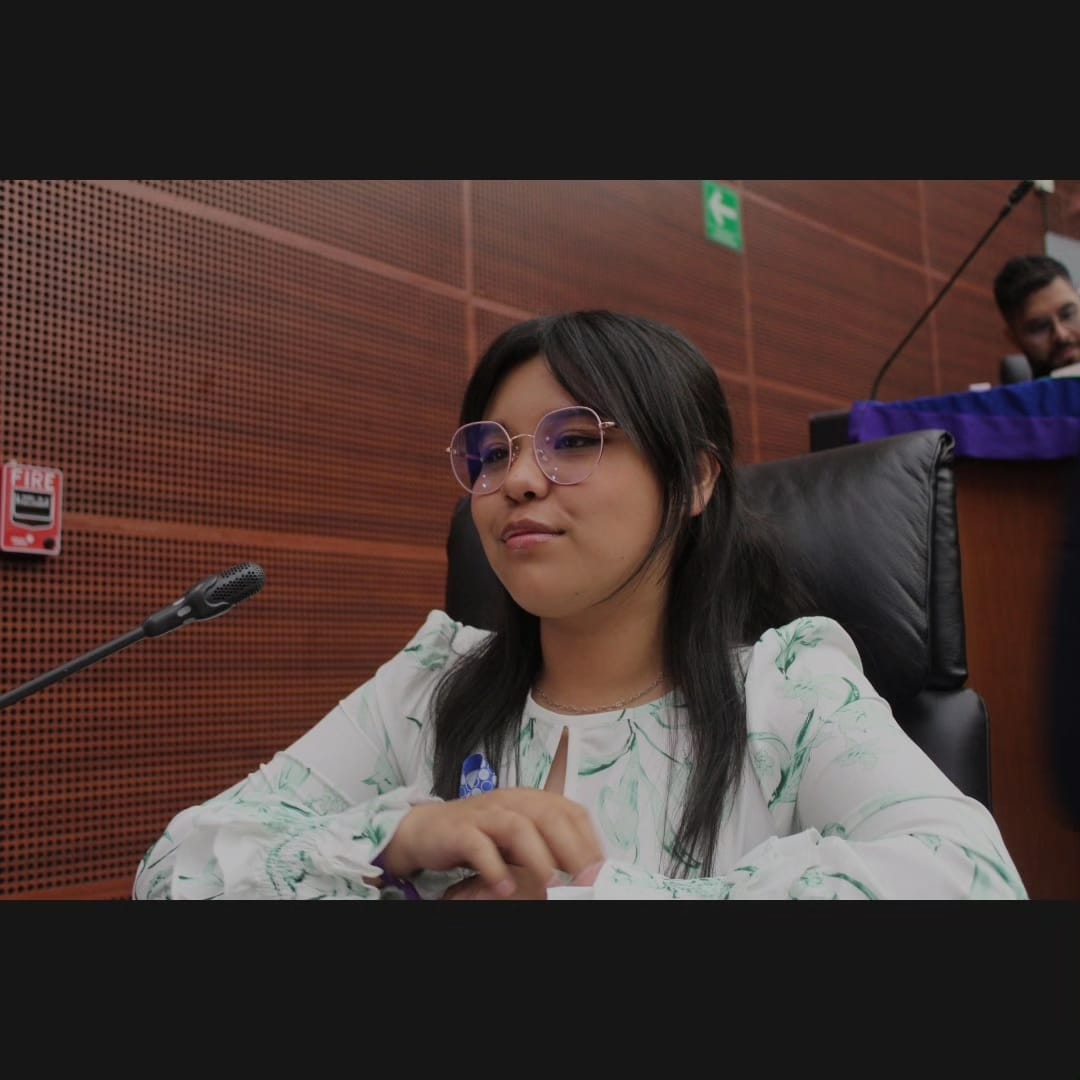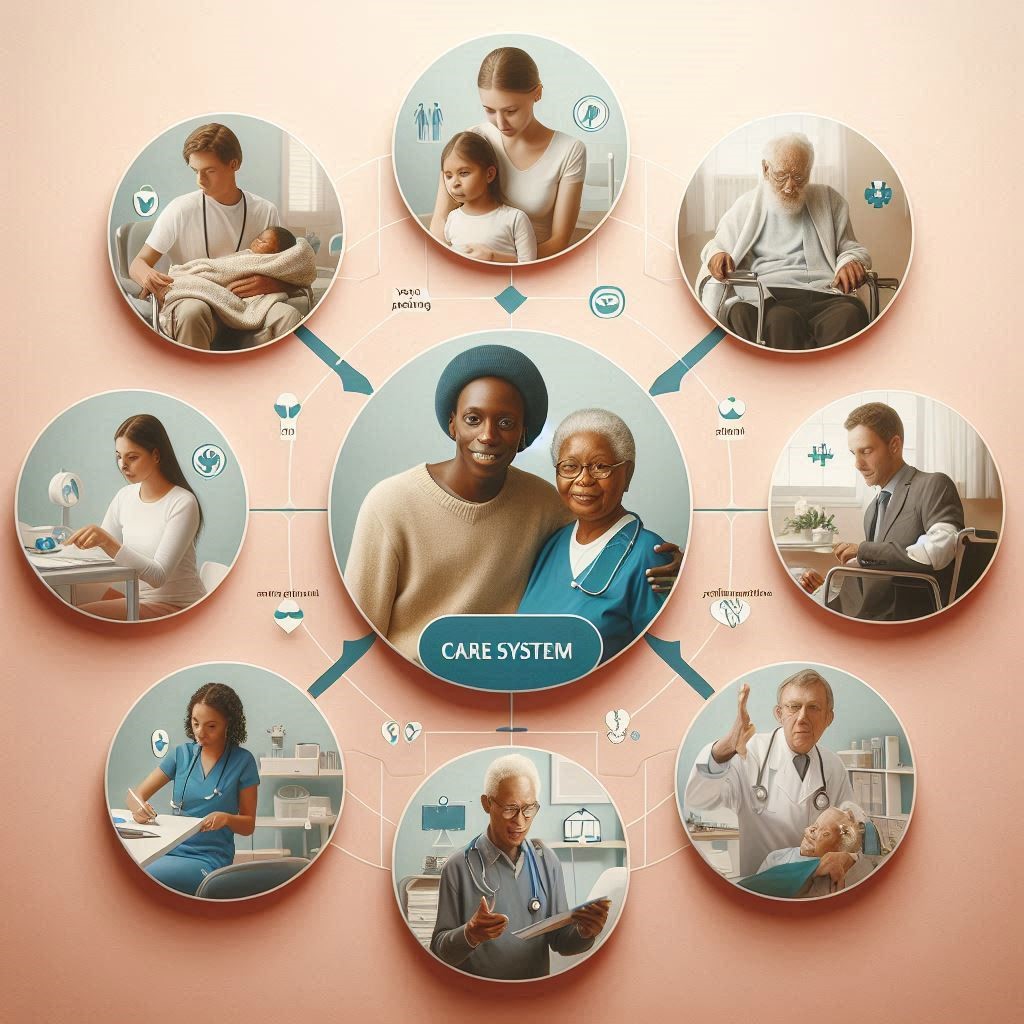By Fernanda Monserrath Gutierrez Zaragoza
Youth Advisory Group-GOYN CDMX
In Mexico, and particularly in Mexico City, thousands of young people face a reality that deprives them of their fundamental rights. Instead of living a full youth, studying or working, they are dedicated to caring for their relatives. For many of these young people, this task is not an option, but a necessity that stems from the lack of a care system that supports them. This burden not only excludes them from educational and work opportunities, but also affects their emotional well-being and mental health.
The Youth Opportunity Action Route in Mexico City, within the framework of the Global Opportunity Youth Network (GOYN) and in collaboration with Citizen Initiative, seeks to make this problem visible and address it. Since my participation in this initiative, as a young caregiver, I have been able to see first-hand how young caregivers, historically invisible, are beginning to organize and raise their voices to demand a structural change in care policies in Mexico.
The youth that sustains the City: the urgency of a comprehensive care system in Mexico City
In Mexico City, more than 300,000 young people live at a crossroads that affects their future: they must choose between access to education or decent employment, or dedicating themselves to caring for their family members. These young people, mostly women, take on unpaid care responsibilities that neither the State nor society adequately recognize. This leaves them in a situation of extreme vulnerability, limiting their potential to fully contribute to society.
According to the National Survey on Time Use (ENUT), 931 TP3T of those who perform unpaid care tasks in Mexico are women, and a significant proportion of them are young. These tasks, essential for the well-being of their families and the general functioning of society, do not receive any type of economic compensation or social or labor recognition. In fact, it is estimated that the value of unpaid care work represents 231 TP3T of the Gross Domestic Product (GDP) of Mexico City, which highlights the economic importance of this invisible activity.
Education, Employment and Mental Health: The Key Pieces of a Care System
The lack of recognition and support for young caregivers has devastating consequences. Thousands of them are forced to drop out of school because they do not have the time or resources to balance their caregiving responsibilities with their education. According to INEGI, nearly 3 million young people across the country cannot continue their education or access decent employment due to the caregiving responsibilities they assume. In Mexico City, where social inequalities are deep, this situation is even worse.
The impact is not limited to education alone. These young people also face barriers to accessing decent jobs. Caregiving responsibilities, not recognized by the system, exclude them from the formal labor market, condemning them to economic precariousness. The jobs they manage to obtain, when they can, are generally informal and poorly paid, which perpetuates a cycle of poverty.
In addition to these educational and work barriers, the emotional well-being of young caregivers is seriously compromised. 70% of caregivers in Mexico report high levels of stress, anxiety, and burnout, according to INEGI data. The emotional burden of caring for a loved one without adequate support and without time to rest generates negative consequences for their mental health. The lack of access to mental health programs and psychological support further aggravates the situation, leaving these young people without the necessary tools to manage the stress and emotions that come with their role.
The Workshop on Communication and Negotiation: Tools for Incidence
On August 17, I participated in the Workshop on Communication and Negotiation Aimed at Decision Makers, which was a turning point in my understanding of the power of political advocacy. This workshop not only provided us with tools to better articulate our demands, but also taught us how to negotiate with those who have the power to make decisions that affect our lives. We understood that political advocacy is not only about expressing our needs, but about translating our experiences into concrete proposals that can generate structural changes in public policies.
Throughout the workshop, young people like me shared our stories and discussed how the challenges we face in our daily lives as caregivers can be transformed into opportunities to influence fairer public policies. One of the most valuable lessons learned was the power of communicating strategically to generate empathy and capture the attention of decision-makers. We recognized that if we want our voice to be heard, we must be clear and forceful in our proposals.
Political Incidence: The Key to Change
The solution to this care crisis lies in creating a comprehensive care system that recognises the value of care work and offers young carers the opportunities they deserve. This must include access to decent jobs, with flexible working hours that fit their caring responsibilities. At the same time, it is crucial to implement policies that allow them to continue their education, adapting programmes to their needs and providing the necessary support so that they are not forced to drop out of school.
Furthermore, a comprehensive care system must consider access to mental health and emotional support for these young people. The emotional exhaustion they face is not something we should ignore; it is a reality that is affecting their ability to fully develop. Political advocacy is key to achieving these changes. We need public policies to include young caregivers as a priority group and ensure that their rights are recognized.
Mexico City must be an example of equity and justice, where care work is not seen as a burden that falls only on women and young people, but as a shared responsibility that needs to be supported by solid public policies. Creating a comprehensive care system is not only an act of justice, but an investment in the future of our city.
Conclusion: Towards an Inclusive Care System
The creation of a comprehensive care system in Mexico City is not only urgent, it is absolutely necessary. These young caregivers, invisible to many, are the ones who sustain their homes and, ultimately, the well-being of our society. If we do not act, we are condemning an entire generation to poverty, social exclusion and precariousness.
It is time to recognise and support those who provide care. Implementing comprehensive care policies is not only a matter of social justice, but also a commitment to collective well-being. An inclusive care system that guarantees access to decent employment, quality education and mental health is the key to ensuring that no young person has to give up their rights to care for their loved ones.
As Eleanor Roosevelt said, “The future belongs to those who believe in the beauty of their dreams.” Today, youth caregivers are ready to transform their dreams into concrete actions, and it is our duty to ensure they have the tools and support they need to achieve this. Change is possible, and together, we can build a care system that recognizes and values the work of those who support our families and our society.






